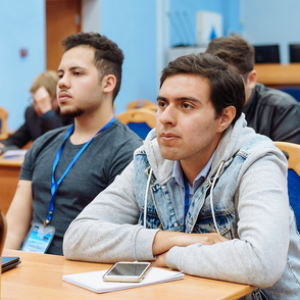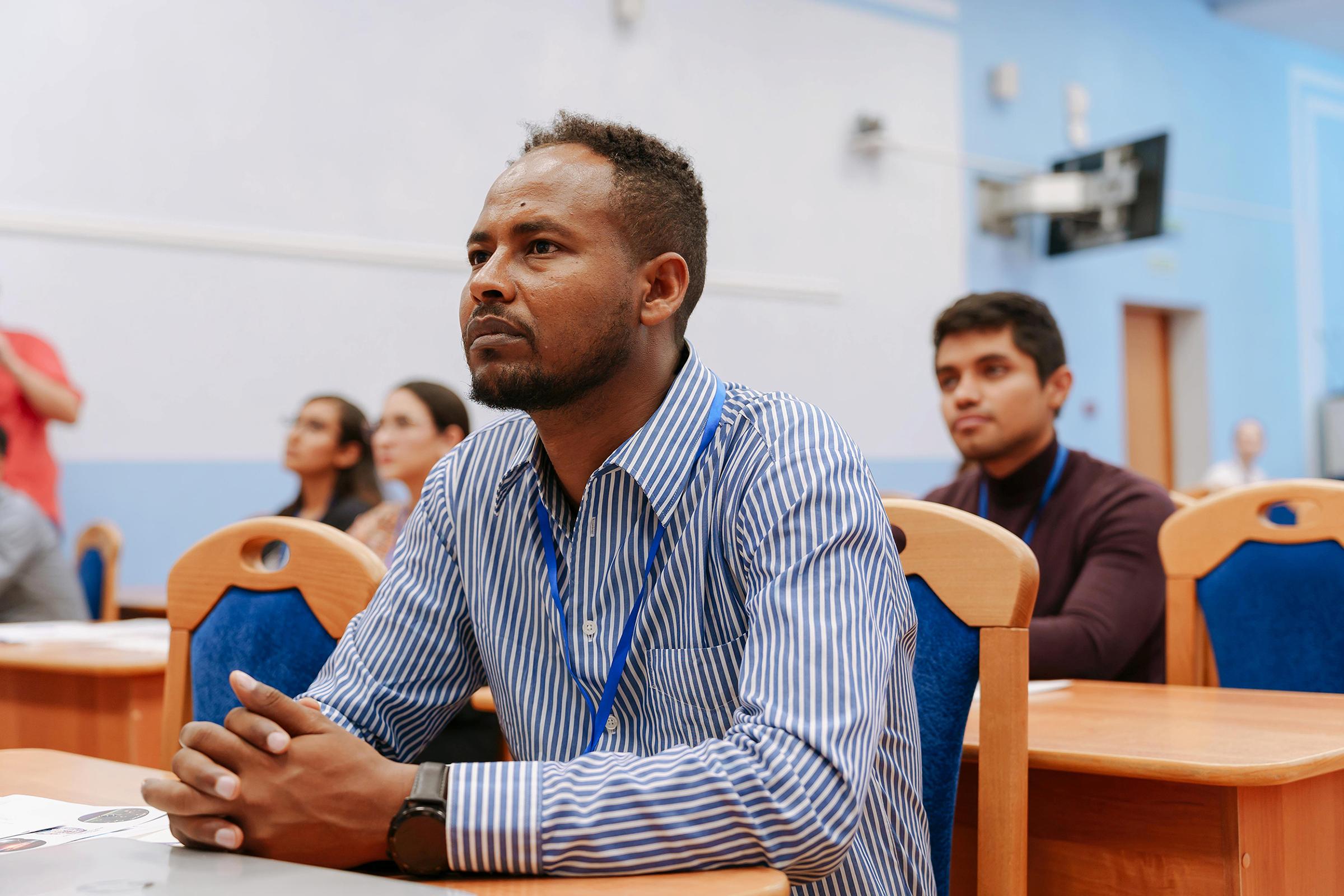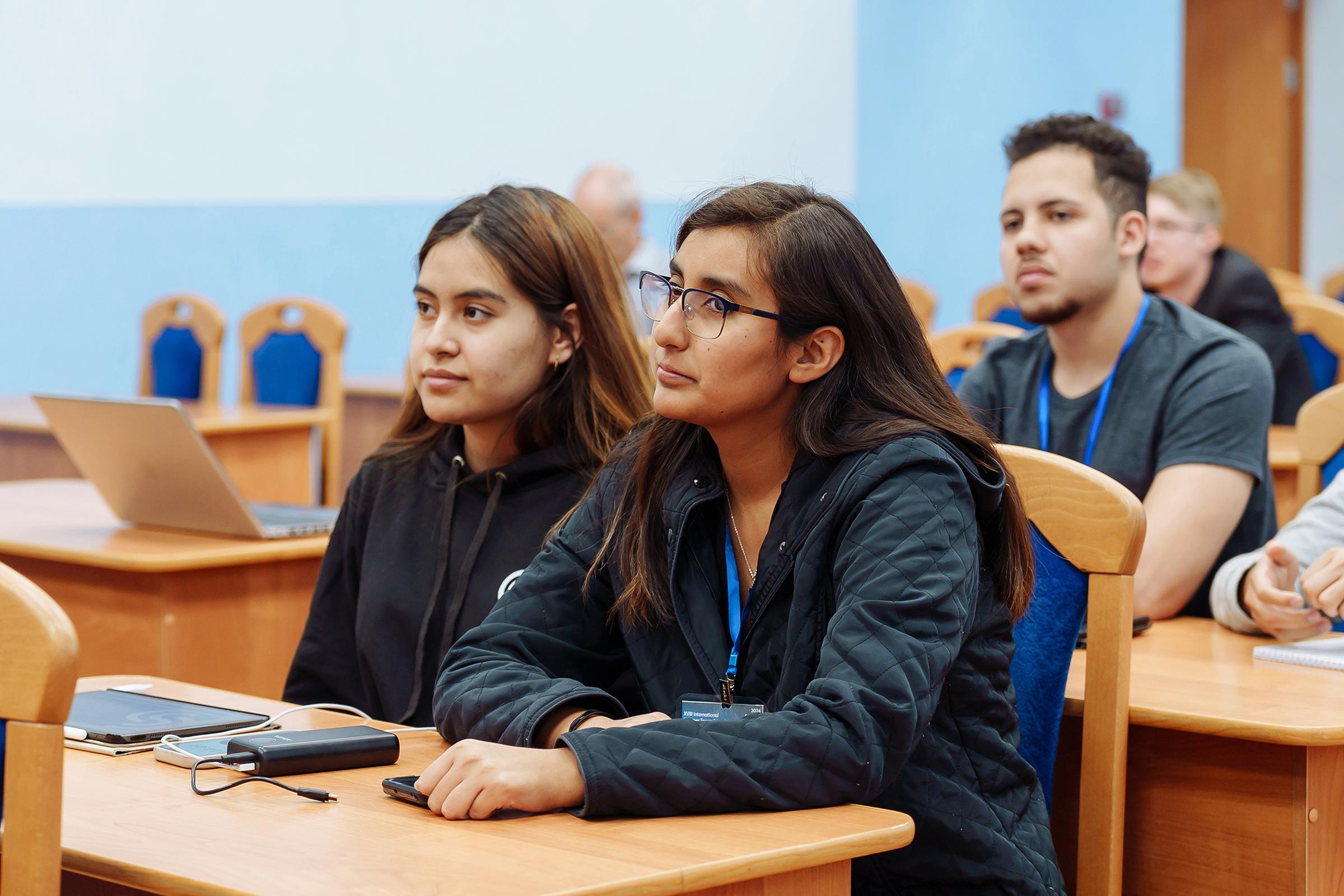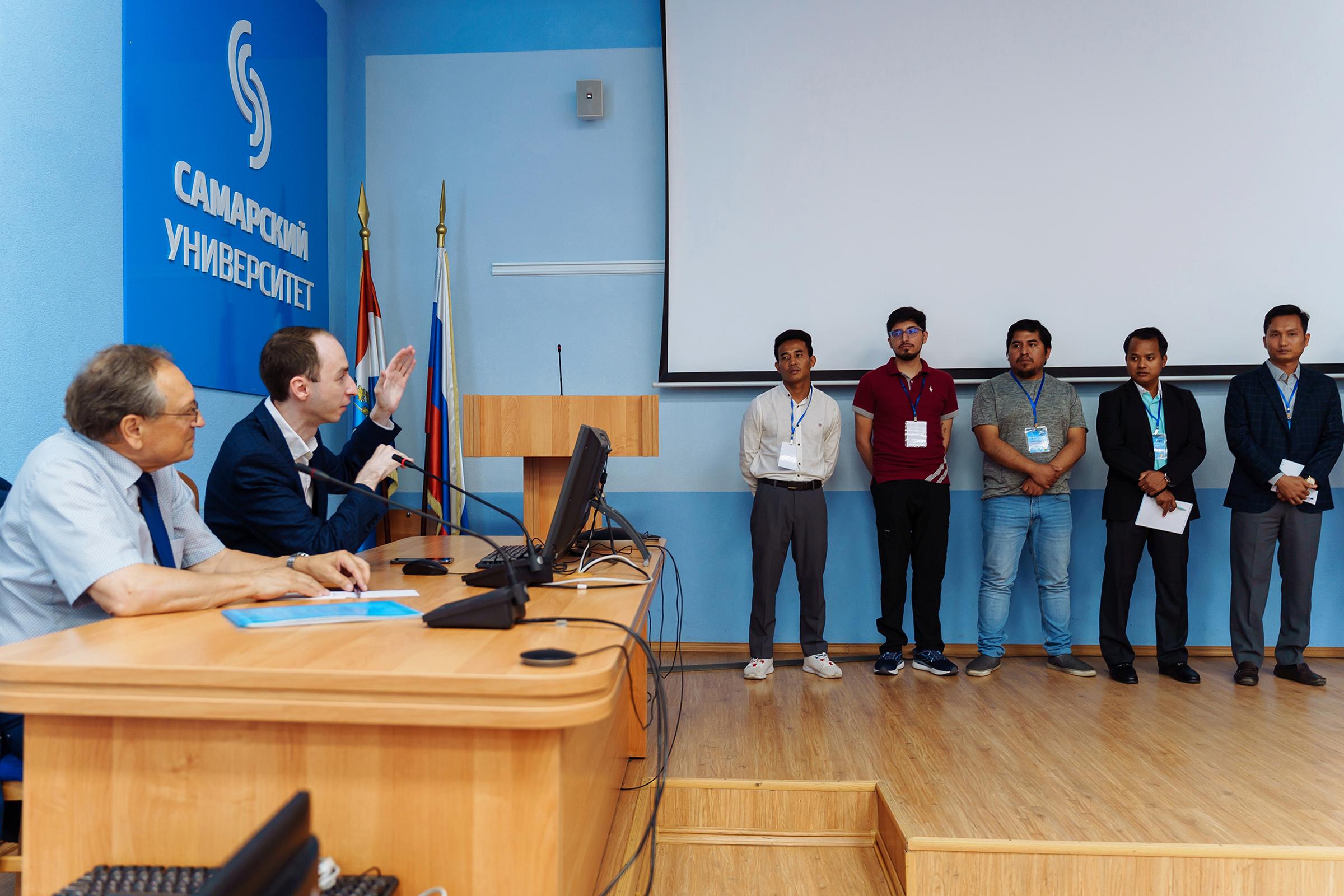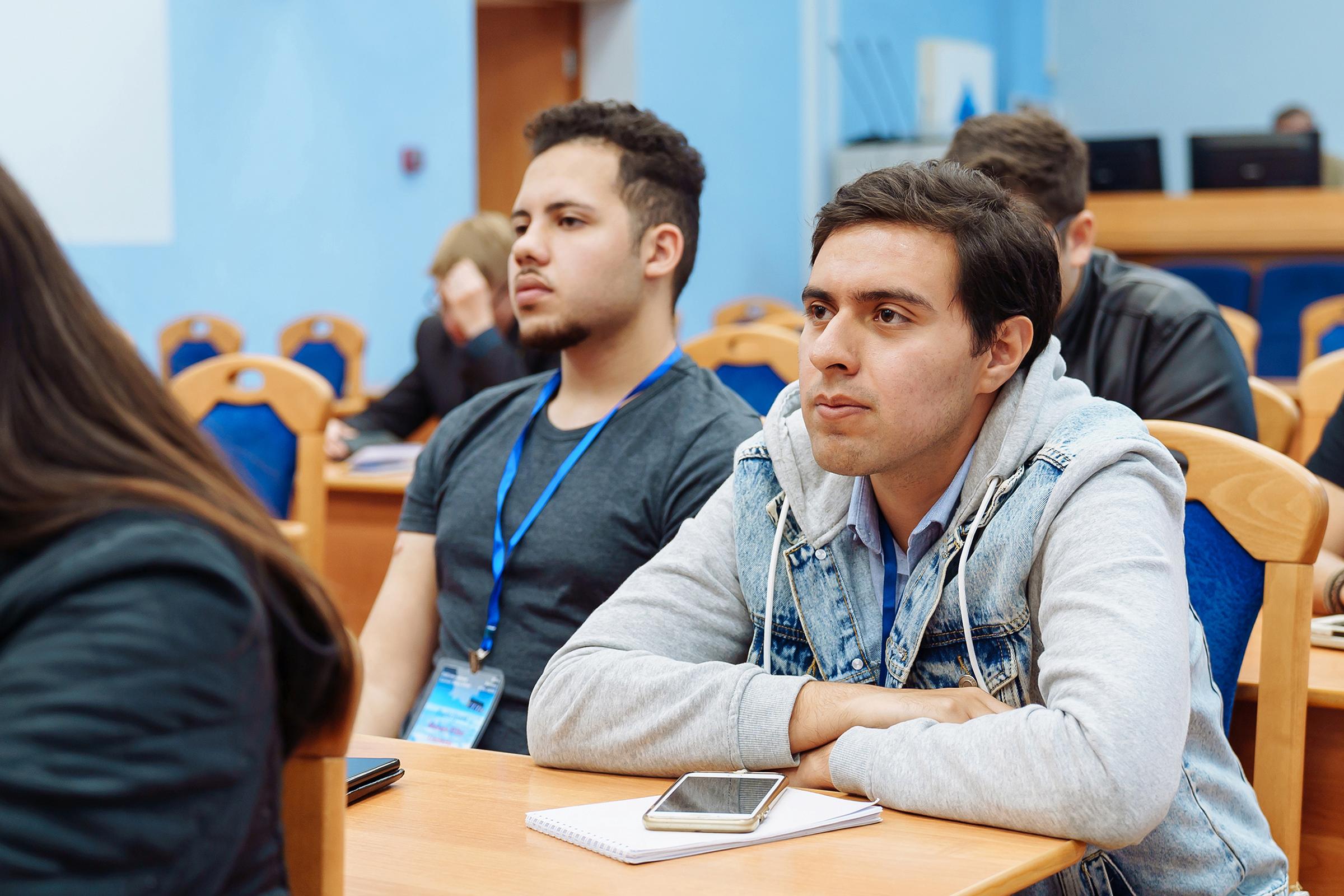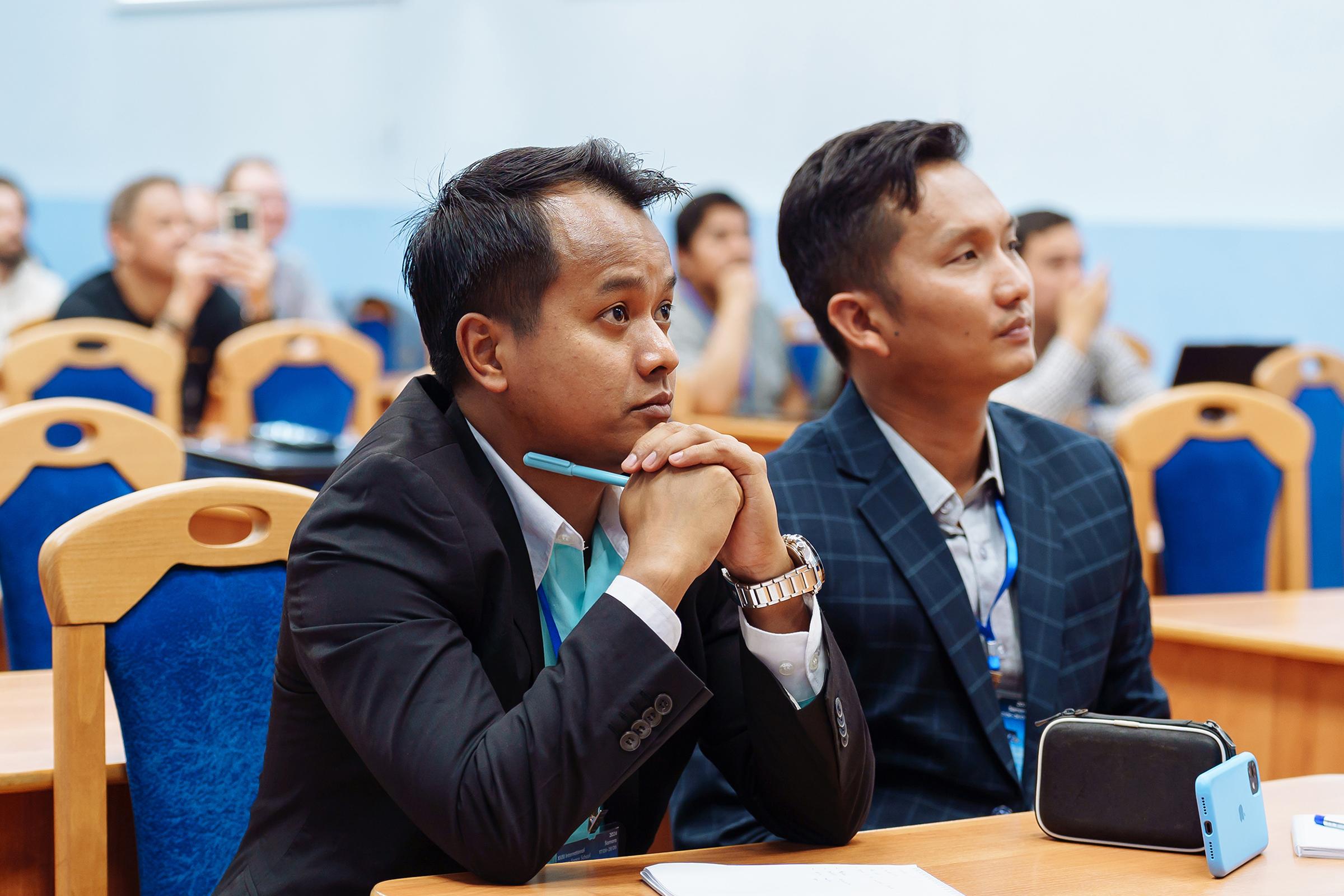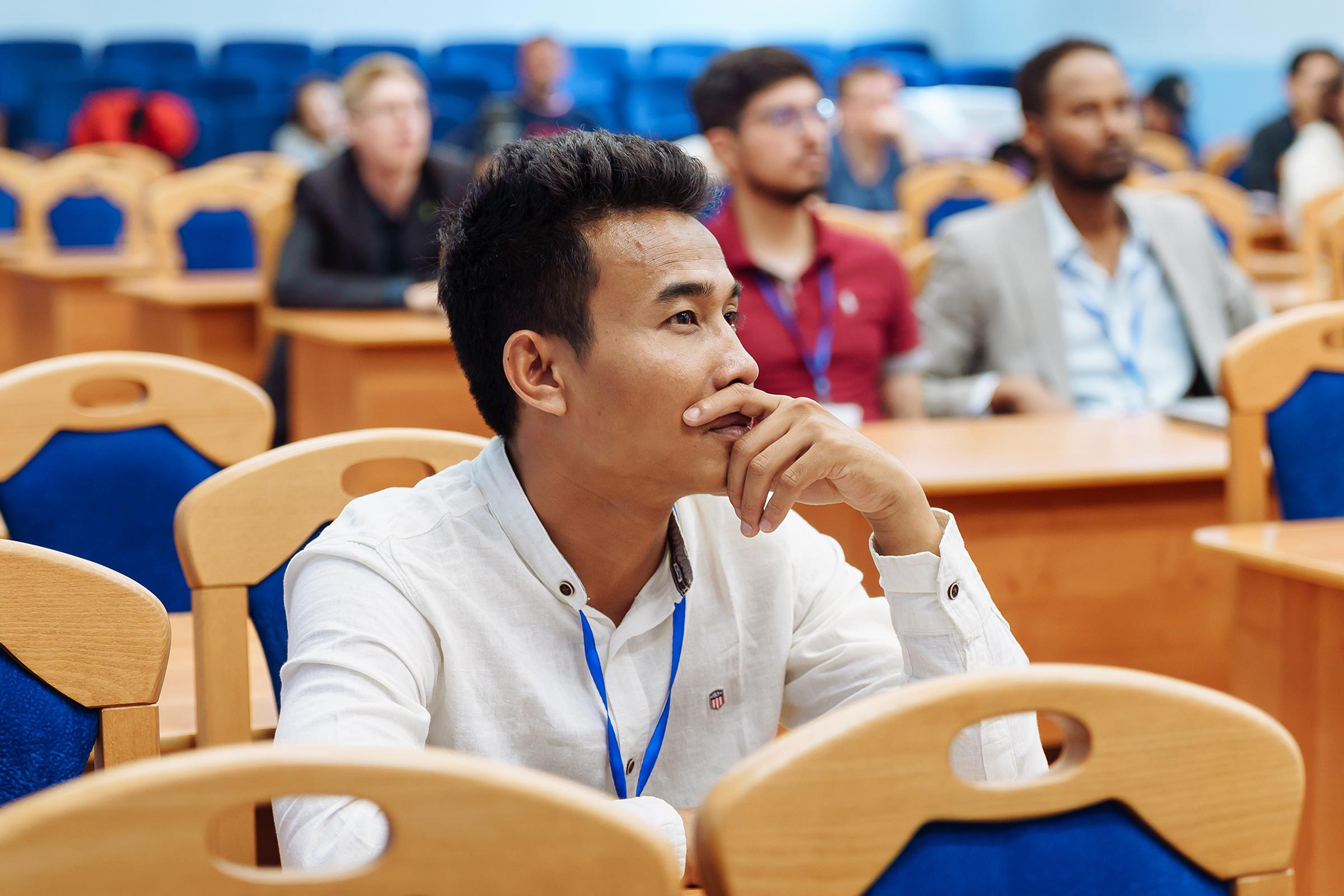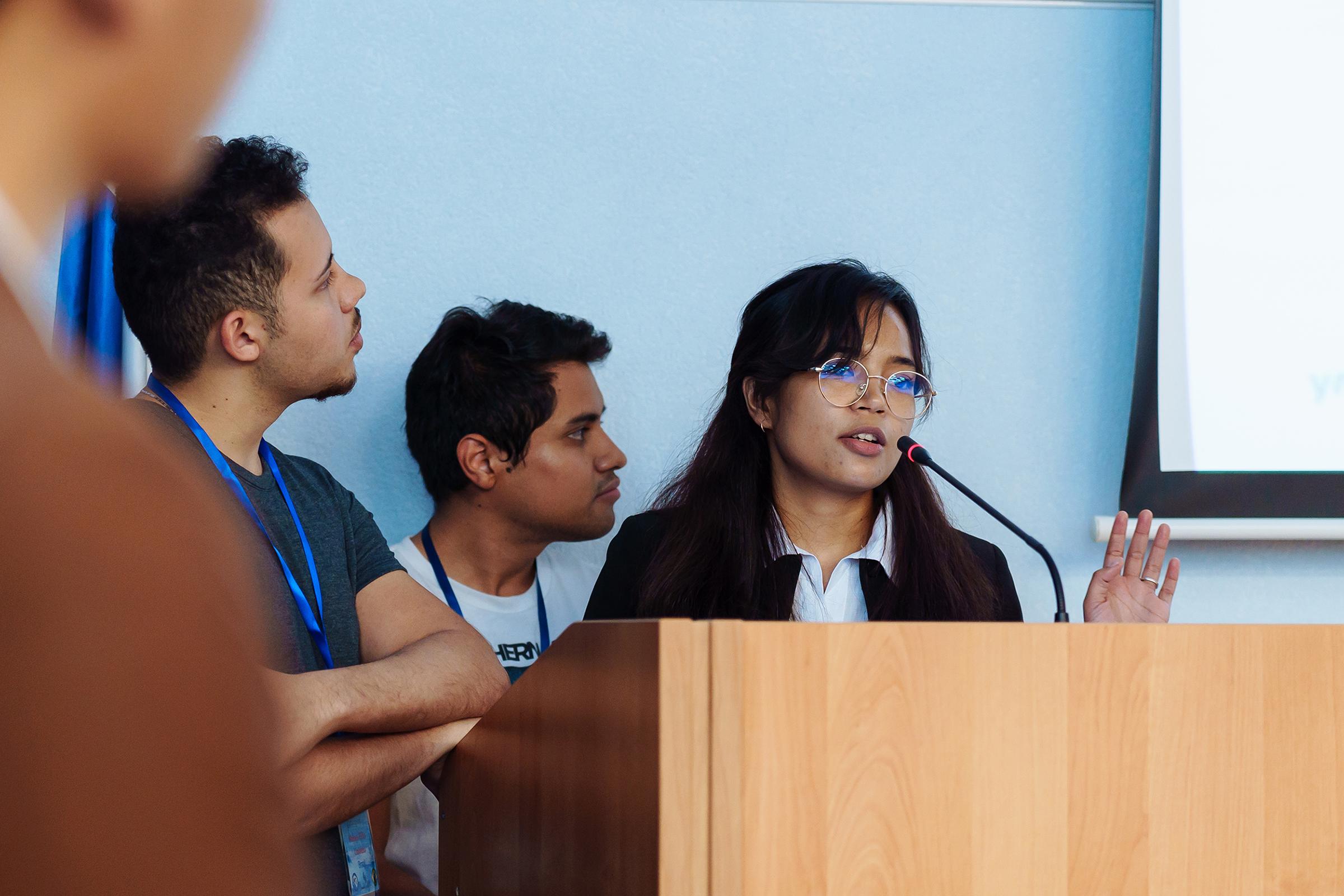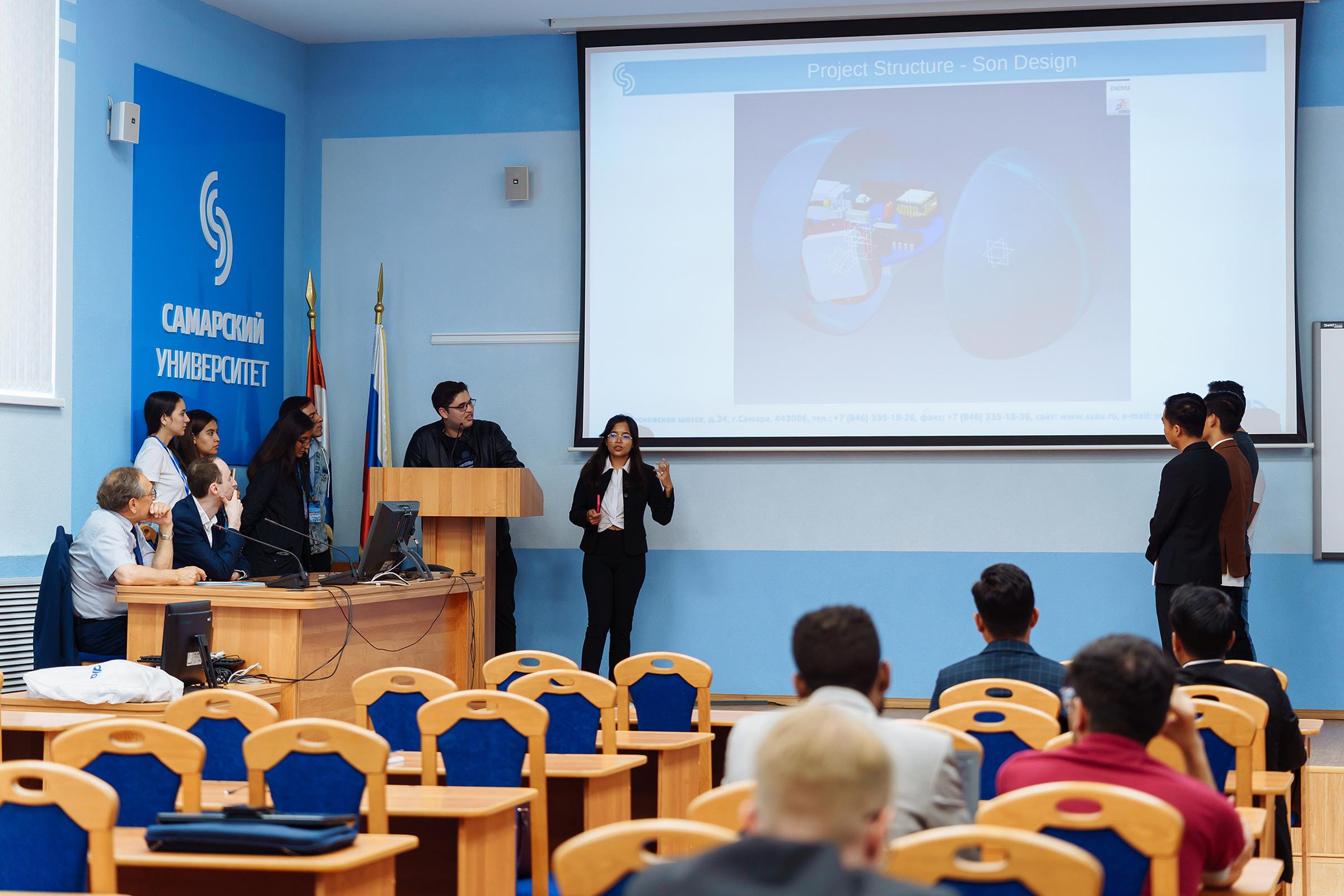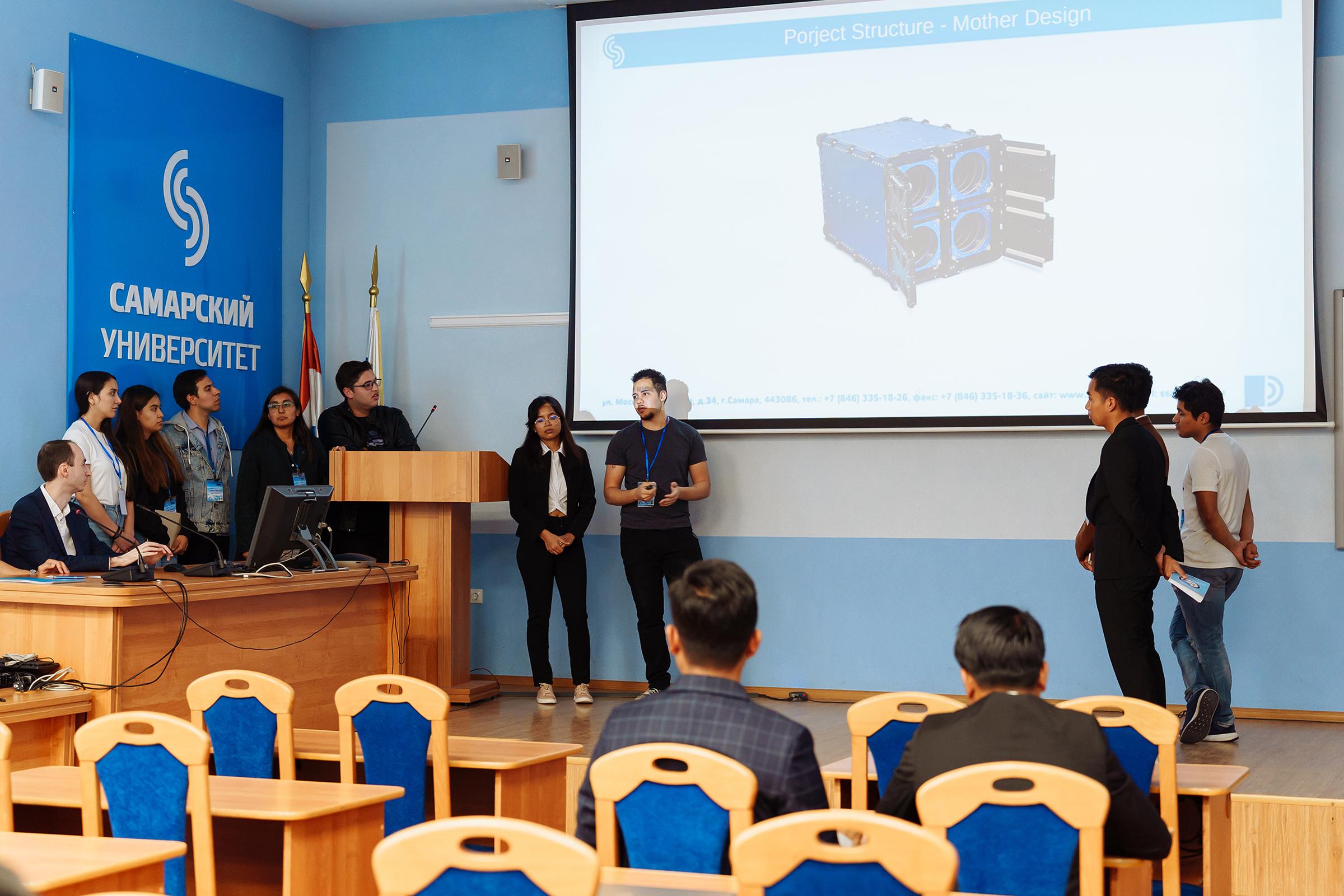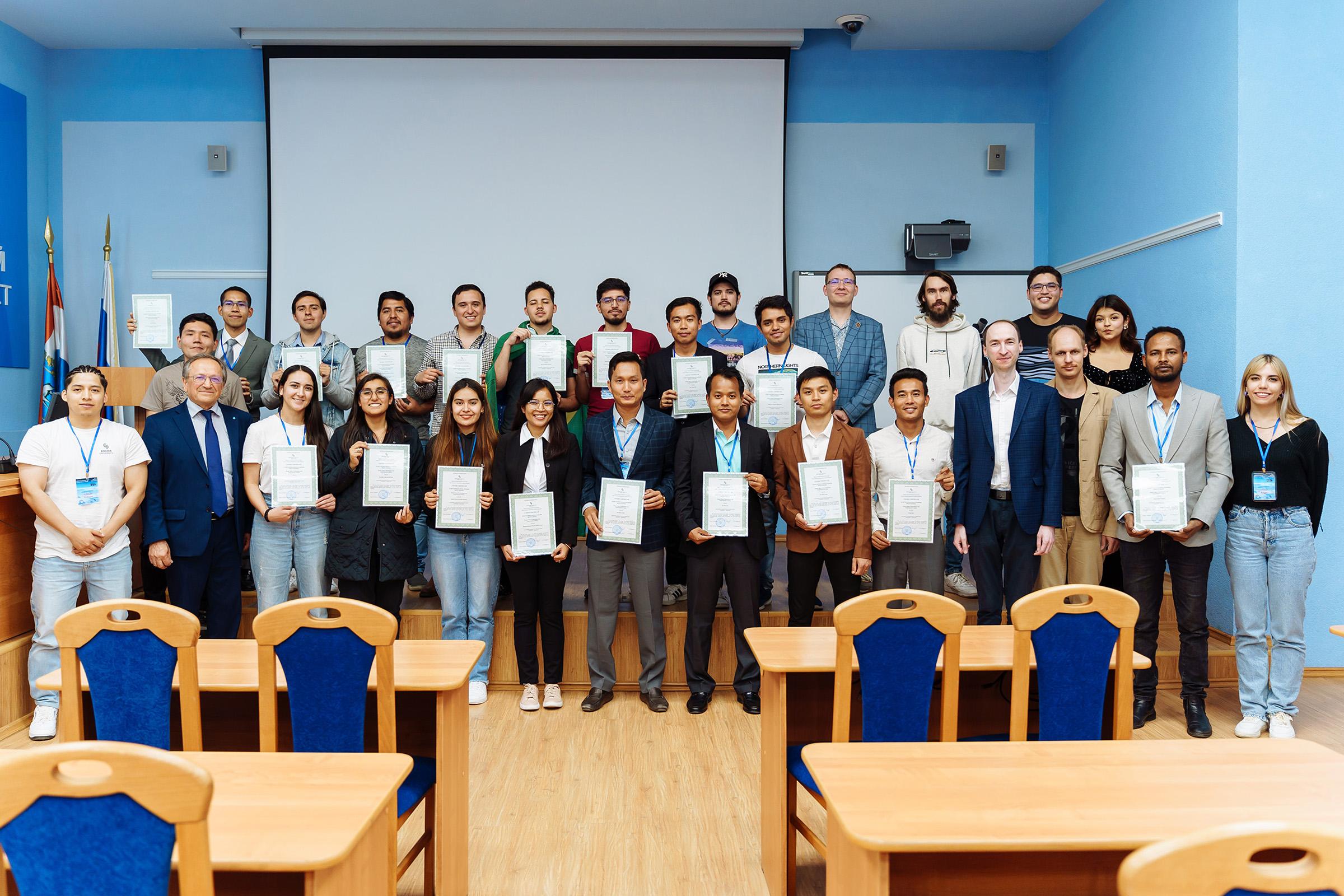Nineteen foreign students and young scientists from seven countries attended a course of studies within the framework of the 18th International Summer Space School “Future Space Technologies and Experiments in Space”. This year, representatives of Brazil, Bolivia, Madagascar, Mexico, Myanmar, Ethiopia and Peru graduated from the Space School being one of the hallmarks of the Samara University. The participants successfully defended projects of the two academic missions and were awarded the certificates confirming that they completed the course of studies.
The first academic mission was the design of a six-unit nanosatellite for remote sounding of the Earth in the optical range. According to the school manager, head of the Inter-university Department of Space Research Igor Belokonov, this year, the issue of space monitoring of country’s proved to be highly relevant for many participants of the school, for example, for the representatives of Myanmar, because of that the students selected this project.
The second academic mission was the creation of a group of very small spherical femtosatellites (weighing less than 100 grams), intended for the studies of the density of the Earth’s upper atmosphere.It wil be possible to determine the density of the atmosphere at the level where satellites fly, if satellites slow down in space.
According to Igor Belokonov, “One of the two selected for the implementation projects was focused on studying the atmosphere, from the ‘breathing’ of which a lot depends: for example, the length of the satellite life on the orbit. The information about the atmosphere density is also important for forecasting the movement of space debris. The participants not only worked out the construction of femtosatellites, thought out their electronic “filling” but also found a way to send them to the orbit with the help of the six-unit nanosatellite-carrier that is at the same time being a launching container for the little satellites”.
The scientist also mentioned the considerable growth of interest to the space school this year on the part of students from Latin America and emphasized a possibility of future joint projects of Samara University and Mexico.
The delegation from Myanmar consisted of five young scientists with Toe Wei Tong at the head. He is a research fellow from the Myanmar Aerospace Engineering University. “We came to Samara to study nanosatellite technologies, and the joint work in a multinational team when we designed the nanosatellite was a very valuable experience. Our country is only planning to create its satellite but I think that we’ll be ready for that in 3–4 years”, Toe Wei Tong commented the interest of Myanmar representatives in the educational programs of Samara University.
Eshet Tesfaye Tafese came to Samara from Ethiopia. He is a researcher at the Space Science and Geospatial Institute. This Institute is located in Addis Ababa, the capital city of Ethiopia, and is the main national research institution in the space field.
The young scientist mentioned that the practical part of the Summer School in Samara was very intense: “I have been working at the research institution for seven years but I don’t remember such practical work and on-the-job training like here. That was very cool. I liked the wonderful teachers and excellent equipment in the laboratories of the department of space research”.
Eshet Tesfaye Tafese mentioned the importance of creation of Ethiopian own nanosatellite. “In recent years, the field of nanotechnologies has become very popular, especially in the emerging countries like Ethiopia. We have to build our own nanosatellite”, the young scientist emphasized.
The Samara University has been conducting the course of “Future Space Technologies and Experiments in Space” since 2003. The main goal of the project is the development of international cooperation and creation of a common educational space in the field of future space technologies. Young people from various countries can get new knowledge and competences in the field of space technologies and take part in working on a project joining an international team. Over 500 young people from 45 countries have already been trained. The course is conducted with the support of the Volga Region Branch of the Tsiolkovsky Russian Academy of Cosmonautics as well as the International Astronautical Federation (IAF), of which Samara University is a member.
Photo: Olesya Orina
